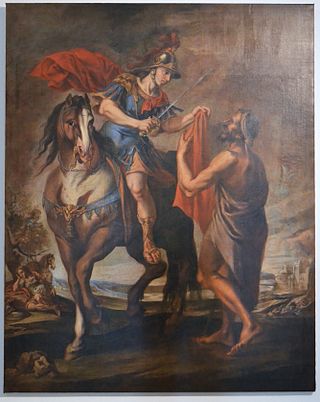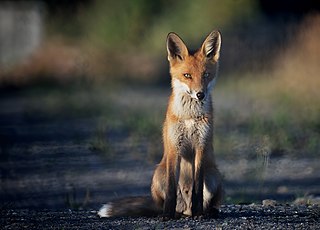
John is a common male given name in the English language ultimately of Hebrew origin. The English form is from Middle English Ion, Ihon, Jon, Jan (mid-12c.), itself from Old French Jan, Jean, Jehan, from Medieval Latin Johannes, altered form of Late Latin Ioannes, or the Middle English personal name is directly from Medieval Latin, which is from the Greek name Ioannis (Ιωάννης), originally borne by Hellenized Jews transliterating the Hebrew name Yochanan, the contracted form of the longer name Yehochanan, meaning "Yahweh is Gracious" or "Yahweh is Merciful". There are numerous forms of the name in different languages; these were formerly often simply translated as "John" in English, but are increasingly left in their native forms.
Patterson is a surname originating in Scotland, Ireland, and Northern England meaning "son of Patrick". There are other spellings, including Pattison and Pattinson. Notable people with the surname Patterson include:
Cahill is a name of Irish origin. It is the anglicised version of the Gaelic "Ó Cathail" meaning "descendant of Cathal".
Lyons is a surname with several origins. It is the name of an eminent Anglo-Norman family that is descended from Ingelram de Lyons, Lord of Lyons, who arrived in England with the Norman Conquest, and from his relation, Nicholas de Lyons, who emigrated from Normandy to England in 1080 and was granted lands at Warkworth, Northamptonshire by William of Normandy. The family originated in the district of the Forest of Lyons, north of the town of Lyons-la-Forêt, in Norman Vexin, where their seat was the Castle of Lyons. The original surname was 'de Lyons' : subsequently, the 'de' was removed from the name, and some branches removed the 's' from the end of the word, producing 'Lyon'.
Hogg is a Scottish, English or Irish surname.
Sutton, originally de Sutton, is an English toponymic surname. One origin is from Anglo-Saxon where it is derived from sudh, suth, or suð, and tun referring to the generic placename "southern farm". Note that almost every county in England contains one or more placenames bearing the prefix "Sutton". The Domesday Book (1086) contains the first recorded spelling of the surname as "Ketel de Sudtone"; "Suttuna" also appeared in 1086 in records from Ely, Cambridgeshire. In 1379 tax records, the surname appears as "de Sutton". One source refers to the origin as being Anglo-Norman, with the name itself derived as described above, from Anglo-Saxon terms.
Gould is a surname, a variant of "Gold"
Wallace is a Scottish surname stemmed from the Anglo-Norman French Waleis "Welshman". It is a northern variant form of Gualeis "Welshman" ; adjectiv gualeis "Welsh" ; same as walois "the oil language".
Buchanan is a surname of Scottish origin. People with this surname include:
The surname Finn has several origins. In some cases it is derived from the Irish Ó Finn, meaning "descendant of Fionn"; the byname means "white" or "fair-haired". In other cases it is derived from the Old Norse Finnr, a personal name sometimes derived from a byname, or else from compound names beginning with this word element. In other cases Finn is a German surname derived from an ethnic name referring to people from Finland. Notable people sharing the surname are listed below.

Martin may either be a given name or surname. In Scotland, Martin or McMartin is a common surname of Scottish Gaelic origin. Martin is, however, more common as a masculine given name in many languages and cultures. It comes from the Latin name Martinus, which is a late derived form of the name of the Roman god Mars, protective godhead of the Latins and, therefore, god of war. The meaning is usually rendered in reference to the god as "of Mars", or "of war/warlike" ("martial").
Bowen is a Celtic surname representing two separate Celtic ethnicities, the Welsh ab Owain meaning "son of Owen" and the Irish Ó Buadhacháin meaning "descendant of Bohan". The Bowen lineage can be traced back to Llwyngwair in the 11th century, near Nevern in Pembrokeshire. The Bowen surname was adopted in 1424. There are seven Bowen crests and the Bowen/Owen family group share a tartan. The Bowen/Bowens surnames are more commonly found in southern Wales, while the Owen/Owens surnames are more commonly found in northern Wales.
Peters is a patronymic surname of Low German, Dutch, and English origin. It can also be an English translation of Gaelic Mac Pheadair or an Americanized form of cognate surnames like Peeters or Pieters.

Fox is a surname originating in England and Ireland. The derivation is from the Middle English "fox", itself coming from the Old English pre 7th century "fox". The surname first appears on record in the latter part of the 13th century, with the first recorded spelling in 1273 to be that of John Fox in the "Hundred Rolls of Yorkshire", England. In Ireland, Fox is mainly a translation of the Old Gaelic "Mac a'tSionnaigh".
Barron is a Scottish surname. Notable people with the surname include:
Clifford is both a toponymic surname of English origin and a given name deriving from it. It originated in several English placenames meaning "ford by a cliff".
Stirling is a Scottish name that originated in Stirlingshire, Scotland. Since prior to the Norman conquest the family held its seat in Stirling, Scotland.
Shannon, MacShannon, and O'Shannon are Anglicised Irish and Scottish surnames that derive from the Gaelic word seanachaidh, which means "skilled storyteller". Seanachaidh is descended from the Old Irish word senchaid.


